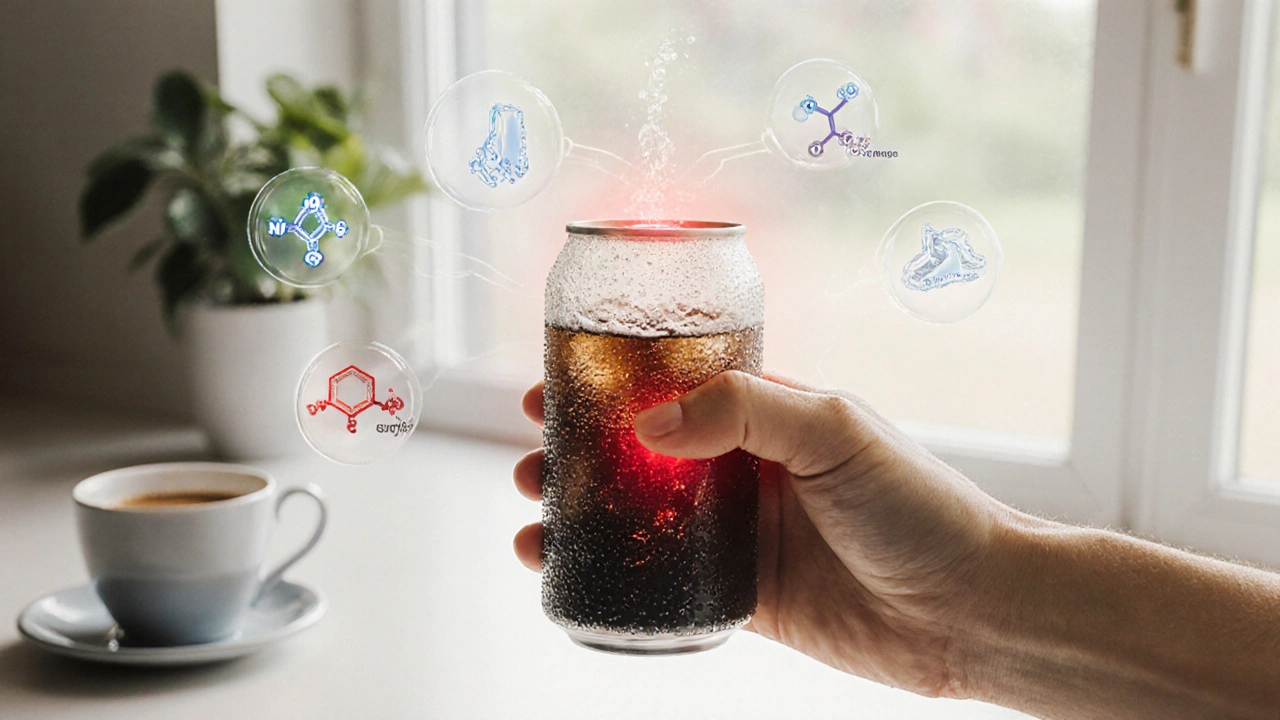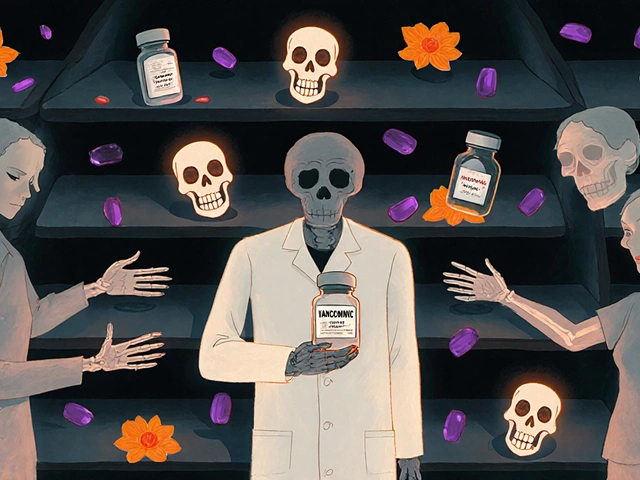GERD: Symptoms, Causes, and How to Find Relief
When dealing with GERD, a chronic condition where stomach acid repeatedly backs up into the esophagus, causing discomfort and damage. Also known as gastroesophageal reflux disease, it often shows up as heartburn, sour taste, or a persistent cough. Closely linked to acid reflux, the occasional upward flow of stomach contents that most people experience after a big meal, GERD represents the long‑term, more severe end of that spectrum. Managing it usually means a mix of proton pump inhibitors, medications that reduce acid production by blocking the stomach’s proton pumps and everyday lifestyle modifications, changes like weight control, sleeping elevation, and dietary tweaks. Below we break down why these pieces matter and how they fit together.
The first sign most people notice is a burning sensation behind the breastbone, especially after eating or when lying down. Other clues include a sour or bitter taste in the mouth, regurgitation of food, difficulty swallowing, or a hoarse voice in the morning. Chronic irritation can even lead to throat inflammation, asthma‑like symptoms, or dental erosion. Spotting these patterns early helps you and your doctor decide if the issue is occasional reflux or full‑blown GERD.
Why does GERD happen? The lower esophageal sphincter (LES) normally acts like a tight lid, keeping stomach acid where it belongs. In GERD, the LES weakens or relaxes at the wrong times, allowing acid to escape. Factors that stress the LES include obesity, pregnancy, smoking, and certain foods—think spicy dishes, citrus, chocolate, mint, fatty meals, and caffeine. Alcohol and large meals also increase abdominal pressure, pushing acid upward. Understanding these triggers lets you target the root cause rather than just treating the symptom.
Diagnosing GERD starts with a detailed history and a physical exam. If symptoms persist despite over‑the‑counter remedies, doctors may recommend an endoscopy to look for inflammation, Barrett’s esophagus, or ulcers. In some cases, a pH monitoring test measures acid exposure over 24 hours, while a motility study checks how well the esophagus moves food. These tools help confirm the condition and guide treatment intensity.
When it comes to treatment, the backbone is medication. Proton pump inhibitors like omeprazole, lansoprazole, and esomeprazole are the most effective at lowering acid and healing the esophageal lining. For milder cases, H2‑blockers such as ranitidine or famotidine can provide relief by reducing acid production in a different way. If medication alone isn’t enough, doctors might consider a surgical option like a Nissen fundoplication, which tightens the LES. Newer endoscopic procedures also aim to reinforce the barrier without an incision. The key is to match the therapy to the severity and your personal health profile.
Medication works best alongside practical lifestyle tweaks. Cutting back on trigger foods, eating smaller meals, and waiting at least three hours before lying down can dramatically lower reflux episodes. Elevating the head of the bed by 6–8 inches helps gravity keep acid where it belongs during sleep. Maintaining a healthy weight reduces pressure on the abdomen, and quitting smoking restores LES function. Even simple habits like chewing gum after meals can increase saliva production, which neutralizes acid.
On this site you’ll find a range of medication guides, safety tips for buying generics online, and step‑by‑step advice on managing chronic conditions that often overlap with GERD, such as heartburn‑inducing allergies or stress‑related digestive issues. Below, the curated collection of articles will walk you through buying affordable meds, comparing treatment options, and applying everyday strategies to keep reflux at bay. Dive in to get the practical info you need to tackle GERD head‑on.
Explore Our GERD Resources
From buying cheap generic antacids to understanding how diet shapes your symptoms, the posts that follow give clear, actionable guidance. Whether you’re looking for a medication price comparison or a quick diet checklist, you’ll find tools that help you stay in control of GERD.

Learn how artificial sweeteners may trigger acid indigestion, which sweeteners are risky, and practical tips to manage heartburn while still enjoying low‑calorie sweetness.
Chris Gore Oct 5, 2025




